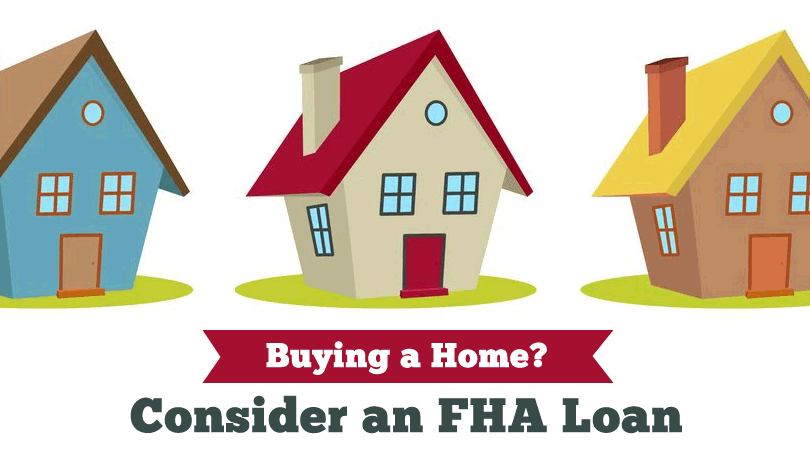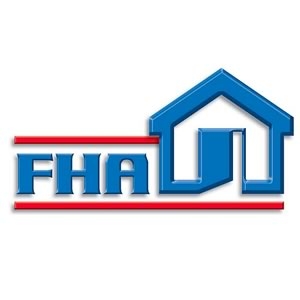Understanding FHA Home Loans: Benefits and How to Qualify
Understanding FHA Home Loans: Benefits and How to Qualify
Blog Article
The Ultimate Source on Home Loans: An In-Depth Check Out Different Funding Programs and Their Advantages for Consumers
Navigating the landscape of home financings can be a complicated job, particularly with the myriad of choices readily available to potential debtors. Each lending program-- be it traditional, FHA, VA, or USDA-- offers distinct advantages that satisfy differing financial situations and homeownership objectives. Recognizing these nuances is critical for making informed decisions that line up with one's monetary future. As we check out these lending programs additionally, it comes to be evident that the right choice may not be as uncomplicated as it appears, motivating deeper consideration of what each choice genuinely entails.
Recognizing Standard Lendings
Conventional loans represent a considerable part of the home funding market, attracting a large range of debtors as a result of their structured terms and competitive rates of interest. These fundings are normally not insured or guaranteed by the federal government, differentiating them from government-backed fundings such as FHA or VA car loans. Instead, standard fundings are supplied by exclusive loan providers, which allows for better versatility in problems and terms.
Normally, conventional loans can be found in two forms: conforming and non-conforming. Adjusting fundings comply with the standards set by Fannie Mae and Freddie Mac, consisting of limits on car loan quantities, debtor credit rating, and debt-to-income proportions. Non-conforming loans, on the various other hand, do not meet these standards and may satisfy borrowers with special monetary scenarios.
Borrowers commonly find that traditional loans give appealing alternatives for deposits, with some needing just 3% down. In addition, those with strong credit report accounts may benefit from lower rates of interest contrasted to various other options. Generally, standard lendings are a feasible selection for many property buyers, using a mix of price and ease of access in the affordable real estate market.
Discovering FHA Lending Perks
A considerable variety of homebuyers turn to FHA fundings due to their attractive benefits, specifically for those who may face challenges protecting standard financing. The Federal Housing Administration (FHA) insures these fundings, making them easily accessible for debtors with lower credit history and smaller sized deposits. Commonly, FHA finances need a deposit of simply 3.5% for those with credit score ratings of 580 or higher, considerably reducing the in advance expense of buying a home.
Additionally, FHA financings have adaptable credentials standards that fit a broader range of monetary circumstances. This includes allocations for greater debt-to-income ratios, making it possible for borrowers with existing financial obligations to obtain financing (FHA home loans). In addition, FHA car loans also allow using present funds from relative or organizations to cover deposit and closing expenses, relieving the economic burden on purchasers.

Advantages of VA Loans
VA lendings provide many benefits for eligible veterans, active-duty service participants, and certain members of the National Guard and Gets. Among one of the most substantial benefits is the hop over to these guys lack of a deposit requirement, permitting consumers to finance 100% of the home's worth. This feature makes homeownership a lot more easily accessible for those who have offered in the armed force.
Furthermore, VA finances do not call for personal mortgage insurance (PMI), which can conserve customers significant month-to-month expenses compared to standard finances. The rate of interest on VA finances are normally lower than those of various other finance kinds, better improving cost. Furthermore, VA financings come with flexible credit history needs, making them an appealing option for individuals that might have less-than-perfect credit history backgrounds.
One more trick advantage is the choice for experts to obtain desirable funding terms, consisting of the opportunity of re-financing with the Streamline Refinance option, which can reduce month-to-month settlements. VA fundings use an unique attribute of assumability, permitting future buyers to take over the financing under the same terms, which can be a selling point when reselling the home - FHA home loans. In general, VA fundings give essential benefits that cater specifically to the needs of military workers and their family members
Insights Into USDA Car Loans
Checking out the benefits of USDA car loans reveals a feasible financing option for homebuyers in country and rural areas. The USA Division of Farming (USDA) uses these fundings to promote homeownership, particularly targeting reduced to moderate-income households. One of one of the most substantial advantages is the no deposit requirement, making it less complicated for eligible buyers to purchase a home without the worry of a considerable first investment.
USDA financings likewise feature affordable interest rates, which frequently cause lower monthly settlements compared to standard financing. Furthermore, these car loans do not require exclusive mortgage insurance (PMI), additional lowering the total expense of homeownership. Borrowers can fund not only the acquisition cost but likewise closing expenses, making it an attractive alternative for those with minimal economic resources.
Qualification for USDA car loans is determined by earnings limitations, which differ by area and house size, ensuring that help is directed to those who need it most. With adaptable debt requirements, USDA financings come to a more comprehensive range of applicants, cultivating community growth and security in country and rural locations. In general, USDA financings represent a necessary device for promoting equity in housing opportunities.
Comparing Financing Programs

Traditional loans are often appealing as a result of their flexibility and the opportunity of preventing home mortgage insurance policy with a higher down repayment. On the other hand, FHA loans give chances for borrowers with lower credit history ratings and smaller sized deposits, making them obtainable for newbie buyers. VA finances stand out for professionals and active-duty solution participants, providing desirable terms such as no down repayment and affordable rates of interest.
USDA finances especially accommodate country buyers, advertising cost effective housing in less booming areas with no deposit alternatives. Each program has certain qualification requirements, consisting of income restrictions and property place limitations, which ought to be thoroughly evaluated.
Ultimately, carrying out a detailed comparison of car loan programs includes assessing rate of interest, funding terms, and closing expenses, along with personal financial situations. FHA home loans. read This critical strategy will empower customers to make enlightened decisions that line up with their lasting monetary goals
Conclusion
In conclusion, an understanding of various mortgage programs is crucial for potential borrowers seeking to make educated choices. Each funding kind, consisting of conventional, FHA, VA, and USDA, uses distinct advantages tailored to certain monetary circumstances and demands. By reviewing the one-of-a-kind benefits of these options, people can select one of the most ideal financing that aligns with their homeownership objectives, inevitably helping with an extra obtainable course to accomplishing homeownership and economic stability.
These loans are generally not guaranteed or ensured by the federal government, distinguishing them from government-backed financings such as FHA or VA car loans. Adjusting loans adhere to the standards set by Fannie Mae and Freddie Mac, consisting of limits on funding quantities, customer credit history scores, and debt-to-income proportions.Interest rates on FHA finances often tend to be affordable, giving customers with lower monthly settlements contrasted to conventional car loans.Furthermore, VA finances do not require exclusive home loan insurance (PMI), which can save customers considerable monthly expenses compared to conventional finances. VA finances use a special attribute of assumability, allowing future customers to take over the funding under the same terms, which can be a selling factor when marketing the residential property.
Report this page